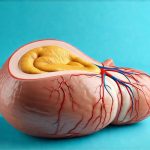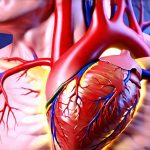Anxiety is a pervasive part of the human experience, often manifesting in ways we don’t immediately recognize. While many associate anxiety with racing thoughts, heightened heart rate, or feelings of dread, its impact on the digestive system can be equally significant – and sometimes even more confusing. The gut-brain connection is incredibly strong; what happens mentally profoundly affects our physical well-being, and vice versa. This often leads to individuals experiencing a range of digestive symptoms during or after anxiety attacks, leading them to suspect underlying gastrointestinal issues when the root cause is actually psychological. Understanding this interplay is crucial for accurate self-assessment (though not diagnosis – seeking professional help remains paramount) and appropriate management strategies.
The challenge lies in the similarity between anxiety-induced digestive problems and those caused by genuine medical conditions. Bloating, nausea, diarrhea, constipation, stomach cramps – all common symptoms of both. This can lead to a frustrating cycle of tests, misdiagnoses, and continued discomfort. It’s important to remember that experiencing these symptoms doesn’t automatically mean you have a serious illness; it could be your anxiety signaling its presence in a very physical way. Recognizing the patterns, understanding the connection, and learning coping mechanisms are all steps toward regaining control over both your mental and digestive health. This article will delve into how anxiety attacks can manifest as digestive issues, what to look for, and strategies to help manage them.
The Gut-Brain Connection: How Anxiety Impacts Digestion
The relationship between our gut and brain is far from one-directional; it’s a complex two-way street known as the gut-brain axis. This axis involves direct physical connections (like the vagus nerve, which runs directly between the gut and the brain) and indirect pathways involving the immune system, endocrine system (hormones), and neurotransmitters. When you experience anxiety, your body enters “fight or flight” mode. This triggers a cascade of physiological changes designed to prepare you for perceived danger. Unfortunately, these changes can wreak havoc on digestion.
During an anxiety attack, the sympathetic nervous system – responsible for fight-or-flight – kicks into high gear. This diverts blood flow away from non-essential functions like digestion and towards muscles, heart, and lungs. Consequently, digestive processes slow down or even temporarily halt. Your stomach may empty more slowly, leading to nausea or feeling full quickly. Intestinal motility (the movement of food through the intestines) can either speed up (causing diarrhea) or slow down (resulting in constipation). Furthermore, anxiety increases gut sensitivity – meaning you’re more likely to notice and be bothered by normal digestive processes. Visceral hypersensitivity, as it’s clinically known, amplifies sensations like bloating or cramping.
This physiological response isn’t just limited to acute anxiety attacks. Chronic anxiety can also disrupt the delicate balance of your gut microbiome—the trillions of bacteria living in your digestive tract. Stress hormones released during prolonged anxiety can negatively impact the composition and function of these beneficial bacteria, further contributing to digestive problems and potentially exacerbating symptoms like irritable bowel syndrome (IBS). It’s a vicious cycle: anxiety affects digestion, and impaired digestion can worsen anxiety. Understanding how late-night snacks might affect this is also important.
Common Digestive Symptoms During Anxiety Attacks
Anxiety attacks don’t present the same way for everyone; similarly, the digestive manifestations vary greatly depending on the individual. However, there are some common patterns to watch out for. Nausea is one of the most frequently reported symptoms. This isn’t necessarily accompanied by vomiting but can create a persistent feeling of unease and sickness in the stomach. Bloating often accompanies nausea, creating a sensation of fullness and pressure. It’s important to differentiate between bloating caused by food sensitivities and that triggered by anxiety – the latter tends to be more sudden and linked directly to anxious moments.
Diarrhea or constipation are also frequently experienced during anxiety attacks. The “fight or flight” response can accelerate intestinal motility, leading to urgent bowel movements and diarrhea. Conversely, if your body remains in a state of heightened stress for an extended period, it can slow down digestion considerably, resulting in constipation. Stomach cramps, often described as sharp, stabbing pains, are another common symptom. These cramps can be localized or spread throughout the abdomen. It’s crucial to remember that these symptoms aren’t necessarily signs of a serious medical condition; they could be your body’s way of reacting to intense anxiety.
- Consider keeping a journal to track when digestive symptoms occur and what you were feeling emotionally at the time.
- Pay attention to whether symptoms are triggered by specific stressful situations or seem to arise unexpectedly.
- Note any other accompanying anxiety symptoms, such as racing heart, sweating, or shortness of breath. Many experience digestive disruption alongside these feelings.
Identifying Anxiety-Related vs. Medical Digestive Issues
Distinguishing between digestive problems caused by anxiety and those stemming from an underlying medical condition can be challenging. One key difference is timing. Anxiety-related digestive issues often occur in conjunction with – or shortly after – periods of high stress, worry, or panic. They may also fluctuate depending on your emotional state. Medical conditions, on the other hand, tend to have more consistent symptoms that aren’t necessarily linked to anxiety levels.
However, this isn’t always straightforward. Some medical conditions, like IBS, can be exacerbated by anxiety. This means that anxiety doesn’t cause the condition itself, but it can significantly worsen the symptoms. If you experience persistent digestive issues, even when not feeling anxious, it’s essential to consult a doctor to rule out any underlying medical causes. Tests may include blood work, stool samples, endoscopy, or colonoscopy to identify potential problems like infections, inflammation, or structural abnormalities. It is important to be aware of extreme meal timing and its effects as well.
- A thorough medical evaluation is crucial for accurate diagnosis.
- Be honest with your doctor about your anxiety levels and any stressors you’re experiencing.
- Don’t self-diagnose; seek professional guidance.
Managing Anxiety & Digestive Symptoms: Practical Strategies
While addressing the underlying anxiety is paramount, there are several strategies to help manage digestive symptoms during or after an anxiety attack. Deep breathing exercises can activate the parasympathetic nervous system—the “rest and digest” response – counteracting the effects of fight-or-flight. Diaphragmatic breathing, in particular, has been shown to reduce stress and improve digestion. Similarly, mindfulness meditation can help calm the mind and body, reducing anxiety and its associated digestive symptoms.
Dietary adjustments can also be beneficial. Avoid trigger foods that exacerbate digestive problems, such as caffeine, alcohol, spicy foods, and highly processed items. Opt for easily digestible foods like bananas, rice, applesauce, and toast (the BRAT diet) during periods of acute distress. Staying hydrated is also crucial, as dehydration can worsen constipation and other digestive issues. Gentle exercise, like walking or yoga, can help relieve stress and promote healthy digestion. Furthermore, understanding how loss of daily natural light impacts the system can be helpful.
- Practice deep breathing exercises regularly, even when not anxious, to build resilience.
- Identify your anxiety triggers and develop coping mechanisms for managing them.
- Consult a therapist or counselor if you’re struggling with chronic anxiety.
- Consider incorporating probiotics into your diet to support gut health (after consulting with a healthcare professional). Understanding overcomplicated meals can also help simplify dietary choices.
It’s vital to remember that seeking professional help is crucial. A doctor can rule out underlying medical conditions and provide an accurate diagnosis. A mental health professional can help you develop strategies for managing anxiety, such as cognitive behavioral therapy (CBT) or medication if necessary. Addressing both the physical and emotional aspects of anxiety is key to improving your overall well-being and regaining control over your digestive health. This isn’t a sign of weakness; it’s a proactive step towards a healthier, more balanced life. Considering whether you experience digestive slowdown in social situations can also be insightful.


















